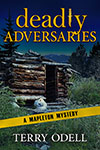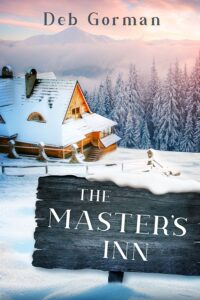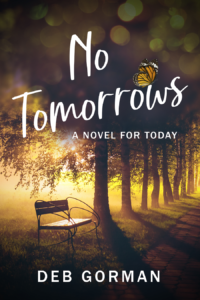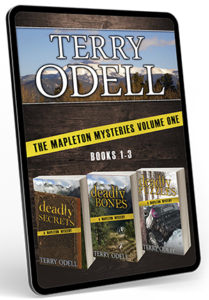When Characters Get Together
Terry Odell
As writers, we spend a lot of time with our characters. But what do they think of us?
 When I finished writing FINDING SARAH, the characters, Randy and Sarah, wouldn’t leave me alone. I ended up writing a sequel, HIDDEN FIRE.
When I finished writing FINDING SARAH, the characters, Randy and Sarah, wouldn’t leave me alone. I ended up writing a sequel, HIDDEN FIRE.
At the time, I belonged to an online writing group, and every Monday there was a writing challenge. Often, it included using specific words or putting a character in a particular situation. For fun, I decided to incorporate some of the “behind-the-scenes” aspects of being a writer, which I recounted in THE OTHER SIDE OF THE PAGE. I hope you’ll enjoy this peek.
The Other Side of the Page
“You know, I’m getting sick of just sitting around here at the mercy of my writer,” Sarah complained. She squirmed, trying to get comfortable on a fallen log. “Look at me. Stuck out here in the woods in the middle of the night, freezing my ass off in a wedding dress while she tries to figure out how to have Randy find me and save me from that creep.”
“Hey, who are you calling a creep?” Chris popped out from behind a nearby tree and sat on the ground next to Sarah. “It’s not like any of this was my idea. And all that perverted sex stuff. What baloney. Hey, I like women. Women like me. I had no problems with women until she decided she needed a nastier villain.”
“Oh, be quiet you two.” Maggie appeared in the clearing, bundled in a heavy parka. “I’ve got some hot tea in this thermos and cookies in my backpack. And a blanket for you, Sarah, since she’s managed to have you lose yours. Maybe she won’t notice.”
“Thanks, Maggie,” Sarah said. She pulled the blanket around her shoulders, wrapped her hands around the cup of tea Maggie had poured for her and tried to keep her teeth from chattering so she could take a sip. “Mmm. What kind of tea is this?”
“How the hell should I know? I just bought some cheap tea bags and added boiling water. All those fancy teas Terry keeps writing for me—what a crock. I would have brought some booze but I was afraid you-know-who,” she glanced skyward, “might notice if you got drunk.”
“Shhh!” Chris said. “I think I hear the keyboard clattering again. God knows what she’ll have us do next.”
“I’m out of here then,” Maggie said. “I’m not in this scene and I don’t want to be, thank you very much. Finish that tea, Sarah, and hide the thermos. If she finds it, you’re in big trouble.” As quickly as she had arrived, Maggie scurried away.
Sarah gulped the rest of the tea and tossed the cup behind a tree trunk. “Get out of here too, Chris. You’re not supposed to find me yet, although I must say, I wish you would. I saw her looking up hypothermia on the Internet and I’m afraid I’m going to be in bad shape.”
“Sorry about that. But at least you’re the heroine. She can’t really harm you. I hope she doesn’t have a shootout planned for me. I don’t think she has a clue that I’m a crack shot and she’ll have my brains blown out instead.”
Sarah jerked upright. “What’s that? Did you hear something? An animal? You don’t think there are bears out here, do you?”
“Bears?” He shook his head. “No. Maybe an owl. She’s not going to put anything out here that will hurt you. Hang in there—I’m sure she’ll bring me back before that beanpole cop finds you. She’s got him stuck in Pine Hills all exhausted and frustrated.”
Sarah wrapped herself in the blanket and watched Chris disappear into the darkness. This character business wasn’t all it was cracked up to be. When she’d answered the ad, she thought it would be fun—be the heroine of a romance novel. Ha! Aside from one really great night with Randy, it had been one disaster after another. Now here she was, stuck in the woods, waiting around to see what her writer could possibly come up with next.
At least it ought to start happening soon. Chris had been right—the keyboard was clattering at a rapid pace.
Without warning, a calico kitten appeared from underneath a nearby log and climbed into Sarah’s lap.
“What the—?”
A voice from above echoed through the trees. “Hey, I can’t help it. This week’s writing class assignment is a killer. I have to use specific phrases in a story, and they’re all unrelated. They gave us six to choose from. I have to use three of them.”
“Let me guess,” Sarah said. “One choice was ‘calico kitten’, right?”
“Right. Now I need two more. Hmm. Untied sneakers won’t work—Chris already took yours away. Same goes for wool socks. Mouthwash? No, that won’t fit. I don’t suppose you’d be willing to dream about herb-roasted potatoes or feta cheese before you pass out from the cold, would you?”
Sarah sighed. “I’m at your mercy, Terry.” She closed her eyes and conjured up a vision of a five-course dinner including the requisite foodstuffs. “But how hard would it have been to use the wool socks instead of the damn cat?”
Ah, but where’s the challenge in that!
OK, TKZers. What are your characters doing when you’re not around?
New! Find me at Substack with Writings and Wanderings
Double Intrigue
When your dream assignment turns into more than you bargained for
 Shalah Kennedy has dreams of becoming a senior travel advisor—one who actually gets to travel. Her big break comes when the agency’s “Golden Girl” is hospitalized and Shalah is sent on a Danube River cruise in her place. She’s the only advisor in the agency with a knowledge of photography, and she’s determined to get stunning images for the agency’s website.
Shalah Kennedy has dreams of becoming a senior travel advisor—one who actually gets to travel. Her big break comes when the agency’s “Golden Girl” is hospitalized and Shalah is sent on a Danube River cruise in her place. She’s the only advisor in the agency with a knowledge of photography, and she’s determined to get stunning images for the agency’s website.
Aleksy Jakes wants out. He’s been working for an unscrupulous taskmaster in Prague, and he’s had enough. When he spots one of his coworkers in a Prague hotel restaurant, he’s shocked to discover she’s not who he thought she was.
As Shalah and Aleksy cruise along the Danube, the simple excursion soon becomes an adventure neither of them imagined.
 Like bang for your buck? I have a new Mapleton Bundle. Books 4, 5, and 6 for one low price.
Like bang for your buck? I have a new Mapleton Bundle. Books 4, 5, and 6 for one low price.
 Terry Odell is an award-winning author of Mystery and Romantic Suspense, although she prefers to think of them all as “Mysteries with Relationships.”
Terry Odell is an award-winning author of Mystery and Romantic Suspense, although she prefers to think of them all as “Mysteries with Relationships.”




 The title of this post is not a play on words. As I might’ve mentioned
The title of this post is not a play on words. As I might’ve mentioned 


 You may have noticed my absence on the weekends lately. This summer, I vowed to take some “me time” and have fun away from the keyboard.
You may have noticed my absence on the weekends lately. This summer, I vowed to take some “me time” and have fun away from the keyboard.







 Meanwhile, in other news, as an antidote to “hitting the wall”, I put together a bundle of the first 3 books in my Mapleton Mystery series: Deadly Secrets, Deadly Bones, and Deadly Puzzles. It went on sale Monday. You can
Meanwhile, in other news, as an antidote to “hitting the wall”, I put together a bundle of the first 3 books in my Mapleton Mystery series: Deadly Secrets, Deadly Bones, and Deadly Puzzles. It went on sale Monday. You can